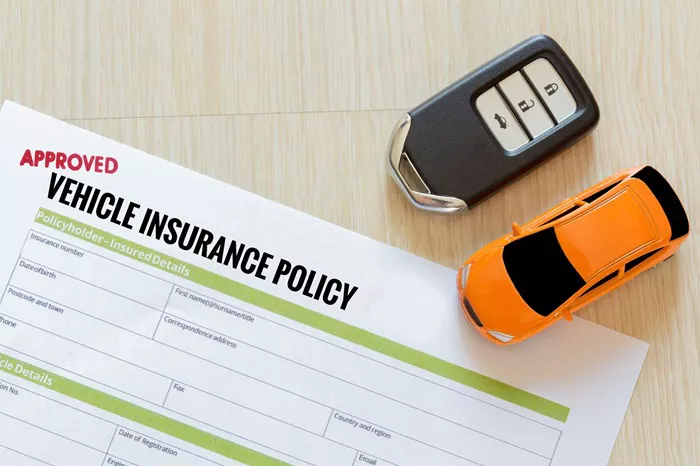Owning rental property comes with a unique set of responsibilities and risks. To protect your investment and ensure financial stability, securing rental property insurance is a crucial step. Rental property insurance, designed specifically for landlords, provides coverage tailored to the needs of rental property owners. This insurance safeguards against various risks associated with renting out property, ensuring that you are well-prepared for unforeseen events that could impact your investment. In this comprehensive article, we will delve into the specific types of coverage rental property insurance offers, exploring each aspect in detail to help you understand what protection is available and how it can benefit you as a landlord.
What Is Rental Property Insurance?
Rental property insurance, often referred to as landlord insurance, is a specialized policy crafted for property owners who rent out their homes or commercial spaces. Unlike homeowners insurance, which covers properties occupied by the owner, rental property insurance is designed to address the unique risks associated with rental properties. This type of insurance provides financial protection against a range of potential issues, including property damage, liability claims, and loss of rental income. Understanding what rental property insurance covers can help you make informed decisions about your policy and ensure that you have adequate protection for your investment.
Coverage Types in Rental Property Insurance
Property Damage Coverage
Property damage coverage is a fundamental component of rental property insurance, offering protection for the physical structure of the rental property. This coverage addresses damage caused by various perils, including:
Fire: If a fire damages your rental property, property damage coverage helps cover the cost of repairs or rebuilding.
Vandalism: In the event of vandalism, such as graffiti or intentional destruction, this coverage provides financial assistance for necessary repairs.
Theft: Property damage coverage can help replace stolen items or repair damage caused by burglars.
Natural Disasters: Coverage may extend to certain natural disasters, such as hurricanes or earthquakes, though specific events might require additional policies.
This type of coverage ensures that you are protected financially if your property suffers damage from a covered event, allowing you to repair or rebuild without incurring significant out-of-pocket expenses.
Liability Coverage
Liability coverage is a critical aspect of rental property insurance, providing protection if someone is injured on your rental property and you are found legally responsible. This coverage typically includes:
Medical Expenses: Covers the cost of medical treatment for individuals injured on your property, including hospital bills and other related expenses.
Legal Costs: If a lawsuit is filed against you due to an injury on your property, liability coverage helps cover legal fees, including attorney fees and court costs.
Compensation for Damages: If you are found liable in a lawsuit, liability coverage provides compensation for damages awarded to the injured party.
Liability coverage is essential for protecting your financial assets and ensuring that you can handle potential legal and medical costs resulting from accidents or injuries on your rental property.
Loss of Rental Income Coverage
Loss of rental income coverage is designed to protect your financial interests if your rental property becomes uninhabitable due to a covered event, such as a fire or significant repair. This coverage ensures that you can recover the income you would have earned from renting out the property during the time it is being repaired or rebuilt. The benefits of loss of rental income coverage include:
Income Replacement: Helps replace the rental income you lose while your property is uninhabitable, providing financial stability during the repair period.
Coverage for Extended Repairs: If repairs take longer than anticipated, this coverage continues to provide income replacement until the property is ready for occupancy.
Having loss of rental income coverage can be particularly valuable for landlords who rely on rental income as a primary source of revenue, ensuring that you do not face financial hardship due to unexpected property damage.
Personal Property Coverage
While rental property insurance primarily focuses on the structure of the property, it may also include some coverage for personal property within the rental unit. This can encompass:
Appliances: Coverage may extend to appliances provided by the landlord, such as refrigerators, stoves, and washers.
Furniture: If you furnish the rental property, personal property coverage might protect against damage to or loss of furniture items.
Fixtures: Items like light fixtures or built-in shelving provided by the landlord may also be covered.
It is important to note that personal property coverage typically does not extend to the tenant’s belongings. Tenants are responsible for obtaining their own renters insurance to cover their personal property. Ensuring that you have appropriate coverage for your personal property helps protect your investment in furnishings and appliances.
Additional Coverage Options
In addition to the standard coverage components, rental property insurance policies may offer additional coverage options to address specific needs and risks associated with your property. These options may include:
Legal Expense Coverage: Covers the costs of legal disputes with tenants, such as eviction proceedings or disputes over lease agreements.
Ordinance or Law Coverage: Provides protection for the additional expenses required to bring your property up to code after a covered loss, ensuring compliance with building regulations.
Equipment Breakdown Coverage: Covers the repair or replacement of major systems, such as heating or air conditioning, if they fail due to a covered event.
Exploring these additional coverages can offer extra protection and peace of mind, depending on the specific risks and needs associated with your rental property.
See Also: Rental Property Insurance: Coverage & Factors
Factors Affecting Rental Property Insurance Premiums
The cost of rental property insurance premiums can vary based on several factors, including:
Property Location: Properties located in areas prone to natural disasters or high crime rates may have higher premiums due to increased risk.
Property Value: The value of your property influences the amount of coverage needed and, consequently, the premium cost. Higher-value properties generally require higher coverage limits.
Property Condition: Well-maintained properties are typically eligible for lower premiums compared to those in disrepair. Regular maintenance and upgrades can positively impact insurance costs.
Coverage Amount: The extent of coverage you choose, including additional options, affects the overall premium. Higher coverage limits and additional features generally result in higher premiums.
Claims History: A history of previous insurance claims can impact your premium rates. Insurance providers may consider your claims history when determining the cost of your policy.
Understanding these factors can help you manage and potentially reduce your insurance costs while ensuring that you have adequate protection for your rental property.
How to Choose the Right Rental Property Insurance
Selecting the appropriate rental property insurance involves evaluating your property’s specific needs and risks. Consider the following steps to find the right policy:
Assess Your Property: Evaluate the value of your property, including its structure and contents, and consider the potential risks associated with its location.
Compare Policies: Obtain quotes from multiple insurance providers and compare coverage options to find the policy that best meets your needs and budget.
Review Coverage Limits: Ensure that the coverage limits of the policy align with the value of your property and the potential risks involved.
Consider Additional Coverage: Determine whether additional coverages, such as legal expense or ordinance coverage, are necessary based on your property’s unique requirements.
Consult with an Insurance Agent: Seek advice from a professional insurance agent who can guide you through the process, help you understand policy options, and find the best coverage for your rental property.
Making informed decisions about your rental property insurance can help you secure the right protection and manage risks effectively.
Conclusion
Rental property insurance plays a vital role in protecting your investment and managing potential risks associated with renting out property. By providing coverage for property damage, liability, loss of rental income, and additional options, rental property insurance ensures that you are well-prepared for unforeseen events. Understanding what rental property insurance covers and how it benefits you as a landlord is essential for making informed decisions about your policy. By evaluating your property’s needs, comparing policies, and seeking professional advice, you can secure the right coverage and enjoy peace of mind as a property owner.






















